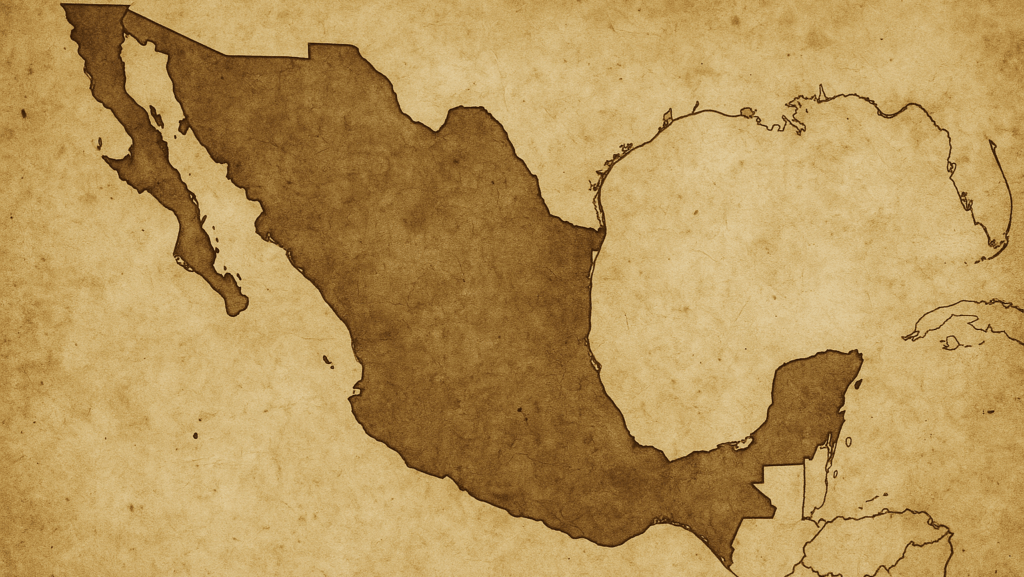Reflections on Conquest and Historical Narratives
If we were to adopt Vladimir Putin’s perspective, it wouldn’t be far-fetched to imagine Mexico asserting its right to send tanks across the Rio Grande, arguing that Texas once belonged to them. It’s a rather absurd notion, yet it highlights the distorted reasoning Putin employs to rationalize the war in Ukraine, and now, seemingly, to manipulate Washington. Recently, former President Donald Trump announced he would ease his previous demands for a ceasefire as a precursor to peace talks, effectively granting Putin the upper hand in negotiations. This approach isn’t strategic; it feels more like surrender. It’s reminiscent of Neville Chamberlain’s dealings in Munich, where diplomacy was misinterpreted and peace compromised. Just as Hitler viewed reconciliation as weakness, so does Putin.
The Texas Revolution wasn’t solely about liberty. It was, in fact, masked opportunism. After gaining independence from Spain in 1821, Mexico welcomed Anglo settlers with land grants, many of whom came from the American South, bringing their own language, culture, and, sadly, slavery. By the 1830s, Anglos outnumbered Mexican citizens in Texas, prompting Mexico to try reasserting its control, which led to rebellion against restrictions on slavery and immigration.
In 1835, Antonio Lopez de Santa Anna dissolved Mexico’s federalist constitution, declaring dictatorial power and inadvertently giving Texan rebels their rationale for independence. They triumphed over Santa Anna at San Jacinto, forcing him to sign a treaty. However, Mexico never accepted this loss.
The phrase “Remember the Alamo” has taken on an almost mythological status, painted as a tale of untainted freedom. Mexico tells a different story, recalling how foreign settlers ignored laws and began seizing territory. Both sides brandish their versions of history, but it’s important to recognize that history isn’t merely a title. You can’t use it to erase established borders.
Texas has not been its own entity for quite some time. In 1845, the U.S. seized upon the opportunity for annexation, igniting a war. President James K. Polk declared that Mexico had shed American blood on U.S. soil. A young Abraham Lincoln called out these claims, introducing the “spot resolution” to ascertain the exact location of the supposed bloodshed. He critiqued the President for starting a war that he deemed unnecessary and unconstitutional. At the time, he faced ridicule as “sloppy Lincoln,” but history has vindicated his judgment.
Others chose to resist action through their words. For instance, Henry David Thoreau’s refusal to pay poll taxes led to a night in jail, fostering one of history’s most impactful essays: “Civil Disobedience.” This wasn’t just theoretical; it was a direct response to the war from Mexican-Americans. Thoreau posited that citizens must not allow the government to suppress their conscience, suggesting that resisting complicity in wrongdoing was a moral obligation. His rebellion would later inspire figures like Gandhi and Martin Luther King Jr. Even amidst national victories, there were Americans who recognized the moral stains of conquest.
The war concluded with devastating consequences for Mexico. The Treaty of Guadalupe Hidalgo forced Mexico to acknowledge U.S. sovereignty over Texas and cede vast territories, including California, New Mexico, Arizona, Nevada, and Utah. For Mexico, it was an outright theft. For the U.S., it was part of manifest destiny. Today, it serves as a stark reminder: borders are fragile when historical grievances are wielded to justify conquest.
This kind of reasoning is what makes Putin’s logic so perilous. If Mexico could claim Texas, Japan might ask for the Kurils, or France could try to reclaim Quebec. It opens a Pandora’s box of historical claims, where peace becomes unattainable.
The modern international framework was established to prevent such chaos. Its principles extend from Westphalia in 1648, through Vienna in 1815, to the UN Charter in 1945. Though these rules are often incomplete or violated, the alternative is endless conflict.
Putin argues he’s defending Russian speakers in Ukraine, much like Hitler did for Germans in Sudetenland back in 1938. Santa Anna similarly claimed a right to reclaim Texas based on heritage. The justifications may change, but the underlying excuses remain constant: it’s about “us.”
Yet, history is not a matter of entitlement, and grievances do not equate to sovereign claims. Nations form through consent, not conquest. Today, Texans identify as Americans, not merely because of historical victories or Polk’s war but because they’ve chosen to affiliate as Americans for nearly two centuries. Similarly, today’s Ukrainians are Ukrainians because they’ve crafted their democracy, selected their leaders, and determined their future. The nostalgia of a neighbor doesn’t have the authority to invalidate that.
Putin’s rhetoric about restoring Russia’s greatness is rooted in emotion rather than legal principle. “Losing glory” doesn’t provide a valid argument; it’s merely a sentiment. Crafting foreign policy based on feelings can lead to catastrophic outcomes, reminiscent of 1914. It’s a tangled web of passion intertwined with political narratives. In contrast, grounding policy in law provides dignity and security, even for the smallest of nations.
That’s why it’s troubling for Trump to step back from demanding a ceasefire. If an aggressor can negotiate while remaining unchecked, peace becomes elusive. A ceasefire isn’t merely a concession; it is a fundamental necessity of sincerity. Without it, Putin continues to dictate Ukraine’s future with blood on his hands.
While borders can change, this must occur through lawful means, negotiations, and the consent of those living within them. It’s not a product of military force, nor is it the result of ancient claims or rulers seeking to revive empires. If we tolerate Putin’s reasoning in Ukraine, we essentially open the floodgates for all authoritarian leaders. Tomorrow, it could be China eyeing Taiwan, Serbia with Kosovo, or someone else, somewhere else.
The U.S. carries its own history of conquest: from the Trail of Tears to the annexation of Hawaii, and the Mexican War. These events do not provide justification for more aggression. Instead, they serve as a reminder of the consequences when power overrides principle. If there’s a takeaway, it’s that grievances cannot legitimize aggression, and sovereignty belongs to the living, not the aspirations of those long gone.
So, if Mexico cannot claim Texas in 2025, then Putin cannot claim Ukraine either. Once you open that door, you might find others armed with their maps and memories ready to walk through. Don’t hesitate. Opt for the law. Choose agreement. Select peace. Anything less isn’t diplomacy; it’s merely laying the groundwork for future conflict.







